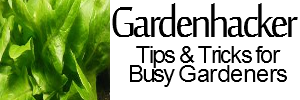Early blight on tomato plants starts on the lowest leaves as dark spots, working it’s way up to eventually consume the whole plant. This fungus (Alternaria solani) overwinters on the debris in the soil, especially on the remains of the…
Tag: tomato
Day 33 – Williamsburg Farmer’s Market
I’d dropped by the Williamsburg Farmer’s Market last week and seen several people who had nice healthy plants for sale. Hoping to get a head start, or at least move things along, I went down there again this Thursday. The…
Some conflicting information re: fungicides for tomato plants
“…Organic fungicides for the prevention and control of fungal disease include neem oil, Serenade® and Oxidate®. Compost tea is often recommended by organic aficionados, but research doesn’t support its effectiveness. Fungicides containing copper may have some effect but copper products may…
Polycyclic Epidemics – Know the Disease Cycle
Late blight has hit most of our tomato plants. Matt’s Wild Cherry’s have so far shown resistance, but most of the others have been affected. The Hack: Bag the diseased plants, DO NOT COMPOST – it will only grow you…
Spotting Late Blight
The warmer days and cooler nights are prime conditioins for late blight. “… Late blight symptoms first appear as somewhat circular, water-soaked spots near the edge of expanded leaflets. These spots expand rapidly during moist weather to form irregular brown,…
ALERT! Irish Potato Famine Disease affecting Gardens and Farmers throughout the Greater Northeast
taken from a pdf at From njfarmfresh.rutgers.edu – click this link to get it directly. Irish Potato Famine Disease affecting Gardens and Farmers throughout the Greater Northeast Revised by A. Wyenandt, NJAES, Rutgers University and M.T McGrath, Cornell University Original…
Comfrey Makes a High Potash Garden Fertilizer
Great article from the-organic-gardener.com regarding Comfrey. The Hack: make a concentrated liquid containing all of the big 3 nutrients: nitrogen, phosphorus, and potassium, in substantial amounts. NPK= 8 : 2.6 : 20.5 %. “…Place the plant’s leaves into a large container, preferably one with a tap or…
How Can I Give My Plants More Calcium?
Updated: From the University of Hawaii, Thanks to djeanis for the update! Link to U of HI paper on the process. http://www.ctahr.hawaii.edu/oc/freepubs/pdf/SA-10.pdf Here’s a recipe I found and an interesting article, just don’t know how long to roast ’em for: 1.…
Why are My Tomatoes and Peppers Not Producing?
Your tomatoes and peppers are very sensitive to the amount of nitrogen you give them, where many other plants are not. The Hack: Low nitrogen fertilizers or mulches until the first fruits are the size of golf balls (they’re recommending…








Recent Comments